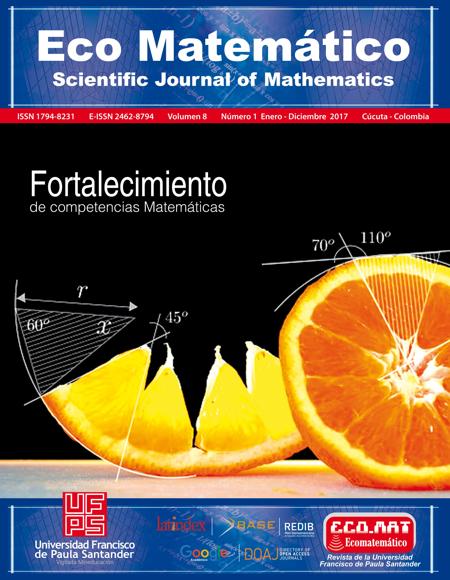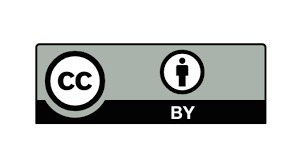Researchers and Statistical culture: A critical sight
Investigadores y cultura estadística: una mirada crítica
Main Article Content
The term “Statistical Culture” refers to the capacity and knowledge that an individual or social group must have to understand, understand and analyze the data and statistical information. Studying the statistical culture in a group of individuals involves measuring knowledge and the way in which statistical applications are carried out, determining the level of reasoning and describing the attitude towards it. In the present investigation, these components were analyzed in the community of researchers from two Venezuelan universities. The community of researchers is made up of tutors, juries and / or advisors of degree works who work in the Postgraduate Deanship of each university. The research was carried out under the quantitative approach. The data collection was done through the technique of the survey and the test. The data collection instruments were: the “SOLO” taxonomy test, the “ATS” attitude test and the objective test. The data analysis was carried out with: descriptive analysis and factorial analysis of the main components, finding that the statistical reasoning in the researchers is at the uniestructural and prestructural levels; knowledge at a basic level; the statistical applications made are incorrect and the attitude is favorable towards statistics, with emphasis on a good disposition towards learning and updating knowledge. Analyze the Statistical Culture, evidenced the aspects of Statistics, that accompany the development of the diverse academic researches produced in the environment. This knowledge will delimit and strengthen the statistical methodological foundations, which face the development of all scientific research.
Downloads
Article Details
Bracho, K. (2011). Cultura investigativa y producción científica en universidades privadas del municipio Maracaibo del Estado Zulia. Trabajo de investigación. [Resumen en línea]. Universidad Rafael Belloso Chacín. Revista Electrónica de humanidades, educación y comunicación social. Disponible en: http://ojs.urbe.edu/index.php/redhecs/article/view/267. [Consulta: 2015, octubre]
Batanero, C. (2001). Didáctica de la estadística. España: Universidad de Granada.
Duarte. (2014). Comprensión y razonamiento de profesores de matemáticas de bachillerato sobre conceptos estadísticos básicos. Perfiles educativos. Vol.XXXVI, núm.146, 2014. IISUE-UNAM.
Estrada, M. (2012). Análisis de actitudes y conocimientos estadísticos elementales en la formación del profesorado. Tesis de doctorado en la didáctica de las matemáticas y las ciencias elementales. [Documento en línea]. Universidad Autónoma de Barcelona. España. Disponible en http://hdl.handle.net/10803/4697. Consulta: 2015, Julio.
Gal, I (2002). Adults’statistical literacy: Meanings, components, responsibilities. Internactional Satatistical Review, 70, 1-25.
Garfield, Del Mas y Chance (2003). Using student’s informal notions of variability to develop an understanding of formal measures of variability. In M. lovett & P. Shah (Eds), Thinking with data (pp.117-148). Mahwah, NJ: Lawrence Erlbaum Associates.
Leal, J. (2009). La autonomía del sujeto investigador y la metodología de investigación. 2da. Edición. Venezuela: Azul intenso. C.A. Valencia, Venezuela.
Pinto, J. (2010). Conocimiento didáctico del contenido sobre la representación de datos estadísticos. [Resumen en línea]. Tesis doctoral del departamento de didáctica de las matemáticas y de las ciencias experimentales. Universidad de Salamanca. España. Disponible en http://hdl.handle.net/10366/76546. [Consulta: 2015, julio]
Rockeach, M. (1968). Las creencias, actitudes y valores. Una teoría de organización y el cambio. San francisco: Jossey-Bass.
Palella, S. (2004). Metodología de la investigación cuantitativa.
Velásquez, L. (2008) «Las redes de investigación virtuales: propuesta de fomento y desarrollo de la cultura investigativa en las instituciones de educación superior» [artículo en línea]. Revista de Universidad y Sociedad del Conocimiento (RUSC). Vol. 4, n. º 2. UOC ISSN 1698-580X. Disponible en: http://www.uoc.edu/rusc/4/2/dt/esp/velasquez.pdf. [Consulta: 2015, agosto]
Wise, S. (1985). El desarrollo y la validación de una escala para medir actitudes sobre la estadística. Mediciones de estadística y psicología.







